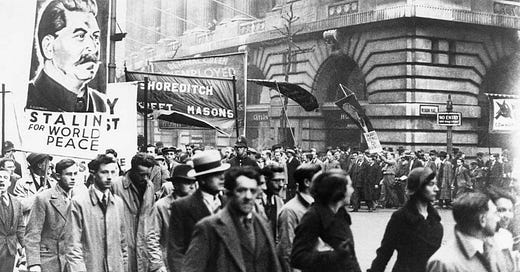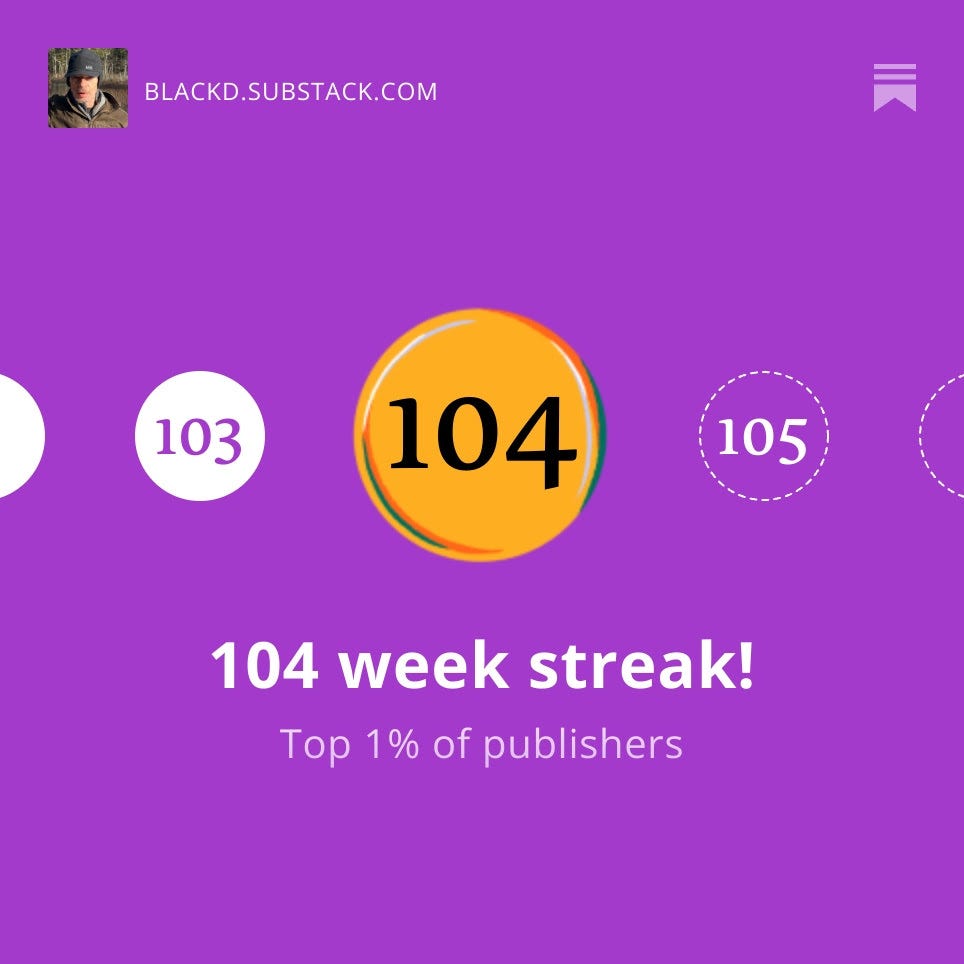Cassandra’s Crossovers
Peter Hitchens moved from Left in the 1970s to the Right in the 1990s. In 2003 he broke with the Tory Party because of its impotency in the face of what he saw as the moral, cultural, sexual and social decay of Britain under Tony Blair’s New Labour government. Hitchens now eschews all political parties, including Nigel Farage’s Reform UK. A self-described ‘Burkean conservative’ and Anglican Christian, he has found himself playing the role of the Cassandra of the culture wars, a Boomer turned Gloomer whose mordant rants against British politics and society appeal to his audience of doom-scrollers.
When talking to interviewers about himself, Hitchens often reminisces of his time during the early 1970s when he and his brother Chris were trotskyists. Peter Hitchens says that ‘bolshevik-leninism’ gave him a ‘unique vantage point’ for understanding the machinations of the top-down politics of both Left and Right. In the case of New Labour:
‘The Blair faction’s ideas came from a communist magazine called Marxism Today. The magazine, in turn, got the ideas from a clever Italian revolutionary called Antonio Gramsci. He wanted a cultural revolution, a Leftist takeover of schools, universities, media, police and courts (and of conservative political parties too). That is exactly what New Labour did.’
Quite an achievement, if true, which it partially is, even if the Daily Maily hyperbole must always be taken with a pinch of salt. Now that the Blairites under Kier Starmer are back in charge - with Peter Mandelson despatched to the Washington embassy as chief art-of-the-deal fixer in negotiations with Trump’s mob regime - Hitchens’ ‘thesis’ is worth examining with a bit more historical insight.
A Lost World
Raphael Samuel (1934-96), in his seminal book, The Lost World of British Communism (Verso, 2006), makes the case that ‘For some 40 years the Communist Party of Great Britain (CPGB) exercised a gravitational pull on the British left, a field of force whose influence it was impossible to escape.’
The key turning point in the party’s declining fortunes came in 1968, the year of the students and workers uprising in France; the Prague Spring (soon to be crushed by Russian tanks); and the growth of the Vietnam Solidarity Campaign, the first real mass movement of the Left (under Trotskyist leadership) to emerge independently of the CPGB.
George Lukács (1886-1971). the Hungarian marxist philosopher, pronounced that the Soviet invasion of Czechoslovakia in August 1968 was ‘the greatest disaster that has befallen the communist movement since the German Social Democrats approved the Kaiser’s war-credits in 1914.’
The CPGB leadership’s refusal to support the ‘Soviet intervention’ failed to stem the party’s decline. Having peaked at 60,000 members in World War Two (the ‘Stalingrad Levy’) the CPGB staggered into the 1970s with an ageing membership of 30,000. In contrast, the Trotskyists grew significantly amongst the youth, whilst remaining divided into split-prone, warring factions. One such was Tony Cliff’s International Socialists, which the young Hitchens brothers joined (full disclosure: I did too).
With the erosion of the CPGB’s industrial base at shop-floor level, the party promoted ‘unity’ with a trade union officialdom that, under the Labour government of the 1970s became less ‘confrontational’. At the same time, many party intellectuals, especially those schooled in the post-structuralism of Althusser and other ‘French Friars’, developed their own power base around the party’s monthly mag, Marxism Today, edited by the modernising ‘Eurocommunist’, Martin Jacques.
The CPGB’s fellow travellers included such luminaries as Student Union president, Jack Straw, who, years later served as Tony Blair’s Home Secretary (Straw once recalled that the CPGB’s industrial organiser, Bert Ramelson, had taught him ‘how to spot a trot’). Among many future Blairites who got their cadre-training in the Young Communist League (YCL) were Peter Mandelson (now Baron Mandelson) and John Reid (who later served as Blair’s Minister of Defence).
Crackup
The first major schism in British Communism emerged at the party congress in 1977. It resembled, in Raphael Samuel’s observation, ‘nothing so much as a war of ghosts in which the living actors are dwarfed by the spectres they conjure up.’ The debate had weak echoes of the tensions the party had grappled with ever since its formation under Comintern control in 1921: between the ‘class against class’ line of the Comintern’s Third Period (1928-34) - which defined social democrats as ‘social fascists’ — and the Popular Front line that replaced it in 1935 when Stalin promoted an anti-German alliance between Russia and France. Through the 1980s the ‘war of ghosts’ played itself out between the ‘Tankies’ - who were determined to preserve ‘industrial work’ and unswerving loyalty to the Soviet Union - and the ‘Eurocommunists’ - who looked back to Popular Frontism in promoting the ‘Broad Democratic Alliance’. By 1988, the Tankies had gained control of the party’s daily paper, the Morning Star, and regrouped around a rival party, named the ‘Communist Party of Britain’. The opposing Eurocommunist Marxism Today faction had, in Samuel’s words
‘no sense of political or any other belonging…no pride in its own tradition, no guilt at the crimes committed in its name, no anguish even at the moral bankruptcy and spectacular weaknesses of Communism in the present.… for all its ritual invocations of Gramsci and hegemony, it seems to have no sense at all of engagement in a battle of ideas, a struggle about values, and for all the preoccupations with a new politics, its first concern, in a bleak situation, seems to be that of making a name, and creating a space for itself.’
Regarding the Eurocommunist CPGB’s view of itself as ‘a strategic facilitator to the movement’, Samuel comments:
‘The Party’s claims for the ‘realignment’ of the Left — i.e., the abandonment of the miners, the split in town hall socialism, and the endorsement of Mr Kinnock’s leadership of the Labour Party — is even more inflationary. Dave Cook, the National Organizer, has likened it to the English October: “Historical parallels are always risky, but the CP was born out of a major realignment of the working-class movement internationally and within Britain…”’
Prospects for a ‘broad’ realignment of the Left fell apart in 1983, when the ‘moderate Right’ of Labour broke away to form the Social Democrat Party; causing a split in the anti-Tory vote which ensured that Thatcher’s government stayed in power.
By the end of the 1980s, when the regimes of the ‘socialist countries’ began to crumble, the two factions of British communism had grown to loath and fear each other. Raphael Samuel recalls that what he, as an ex-member, found ‘riveting’ in reading Marxism Today was the agnosticism it reflected about Labour’s chances of recovery. Labour’s centre-left faction led by Neil Kinnock had seen off the challenge of the ‘Bennite’ Left in the Party. This shift to the Right, away from the unions and ‘infantile leftism’, was applauded by Marxism Today writers, whose articles found their way into the mainstream press. In the middle of the 1984-85 Miners Strike the CPGB’s leading intellectual, Eric Hobsbawm, persuaded Kinnock to do a Marxism Today interview, in which Kinnock’s understanding of Gramscian ‘hegemony’ amounted to quoting Gramsci on ‘Optimism of will, pessimism of the intellect’. Kinnock is chiefly remembered for a speech he made to Labour Party conference in 1987, denouncing the Militant Tendency trotskyists who ran local government in Liverpool. Less remembered is the fumbling mediocrity of his leadership of Labour in two successive election defeats (1987 and 1992).
Peter Mandelson was elected as MP for Hartlepool in 1992 and became Tony Blair’s spin-doctor. His skills had been honed by Young Communist League ‘training’ (as he called it) in mastering the dark arts of organisational management from the top down - complete with purges and side-lining of dissidents. He didn’t waste any time when Kinnock’s successor, John Smith (another left-centrist), died suddenly in May 1994. As Tony Blair’s behind-the-scene campaign director, Mandelson saw off all challengers to Blair’s takeover. Labour became New Labour, with references to ‘common ownership of industry’ expunged from the party constitution. New Labour looked forward to winning back the votes of union-hating Middle Englanders.
Meanwhile, the CPGB, having dwindled to less than 4,500 members, decided, in 1991, to dissolve itself. Under the leadership of red-diaper baby, Nina Temple, the CPGB was reconstituted as the Democratic Left. A few years later it was reconstituted again, as the New Politics Network. The latter went on to sponsor a number of think tank jobs (such as ‘Union 21’ and ‘Make Every Vote Count’) which aimed at promoting the new (Blairite) alignment with Middle England.
Blood Money
At this point the words of a late relative of mine (ex-CP as it happens) spring to mind: ‘Inherited money is the root of all evil’. But with the CPGB and its bastard Blairite think tanks it was more a case of the evil providing the inheritance. When, in 1991, the Sunday Times revealed the secret Russian financing of the CPGB, Jimmy Reid, ex-communist shipbuilders’ leader, investigated further. He found that the Democratic Left inherited £4 million from the Communist Party. With only a few thousand members, the New Politics Network must have become ‘the richest, per capita, political organisation in the Western world… not really a political party but a political ginger group with money’.
It has funded Blairite think-tanks and other ploys. The money it used actually came from the Soviet Union. This is beyond dispute. I once thought talk of Moscow gold was a lie peddled by the Right-wing press in Britain. Alas, it was true in every sordid detail.’ [Tribune – 2 February 2001]
Over the course of the 1960s and ‘70, large bundles of notes in sterling had been passed to assistant general secretary, Reuben Falber at secret pre-arranged meetings by KGB officers. The payments were laundered through the Morning Star by disguising them as donations from well-off sympathisers who wished to remain anonymous. Apart from Falber, the only two party members of the party in on the scam were general secretary, John Gollan and Morning Star editor, George Matthews.
Of course MI5, who had been bugging and infiltrating the party for 40 years, knew all about it. As Robin Ramsay of Lobster magazine explained:
‘We now know there really was Moscow gold in the CPGB; sacks of used notes were transferred from the Soviet Embassy to the party. But the point is this: MI5 knew about this as soon as it started. Peter Wright told us so in Spycatcher, several years before messers Falber and Matthews of the CPGB Central Committee at the time confessed. And MI5 chose to let the money continue. At any time after 1957 MI5 could have exposed the Soviet funding of the CPGB. Had they done so in, say, in the wake of the suppression of the Hungarian uprising, in what state would the CPGB have been in the 1960s?’
Part of the answer to that question would be: in no fit state to stifle the emergence of a new Left free of the influence of a declining Stalinism and Labourism. In that sense the party and the secret state were in cahoots.
The ghosts of the Stalinist legacy still haunt the political landscape in revamped forms such as Anti-Imp Campism, and personality cults like George Galloway’s Workers Party. The legacy of the Stalinist blood money inheritance can still be seen in the reconstituted Blairism of today’s Starmer-led Labour Party; with its nationalist delusions of British exceptionalism, worship of the ‘Market’, authoritarianism, secrecy and sucking up Trump’s ‘End Times Fascism’.
The opening lines of Marx’s Communist Manifesto, as translated by Helen Macfarlane in 1850, resound today with a certain irony:
‘A frightful hobgoblin stalks throughout Europe. We are haunted by a ghost. The ghost of communism’.
Two years in…





